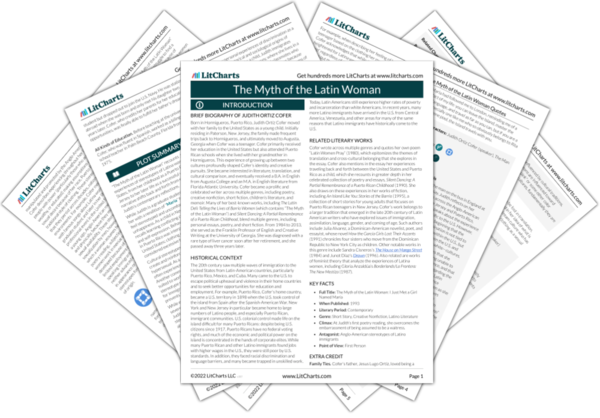Judith Ortíz Cofer Quotes in The Myth of the Latin Woman
Maria had followed me to London, reminding me of a prime fact of my life: you can leave the Island, master the English language, and travel as far as you can, but if you are a Latina, especially one like me who so obviously belongs to Rita Moreno’s gene pool, the Island travels with you.
But it was painfully obvious to me that to the others, in their tailored skirts and silk blouses, we must have seemed “hopeless” and “vulgar.”
It is custom, however, not chromosomes, that leads us to choose scarlet over pale pink.
I do understand how things can be lost in translation. When a Puerto Rican girl dressed in her idea of what is attractive meets a man from the mainstream culture who has been trained to react to certain types of clothing as a sexual signal, a clash is likely to take place.
[T]o him, I was just an Evita or a María: merely a character in his cartoon-populated universe.
Since I do not wear my diplomas around my neck for all to see, I too have on occasion been sent to that “kitchen,” where some think I obviously belong.
Every time I give a reading, I hope the stories I tell, the dreams and fears I examine in my work, can achieve some universal truth which will get my audience past the particulars of my skin color, my accent, or my clothes.
[This poem] is a prayer for communication, and for respect. In it, Latin women pray “in Spanish to an Anglo God / with a Jewish heritage,” and they are “fervently hoping / that if not omnipotent, / at least He be bilingual.”












